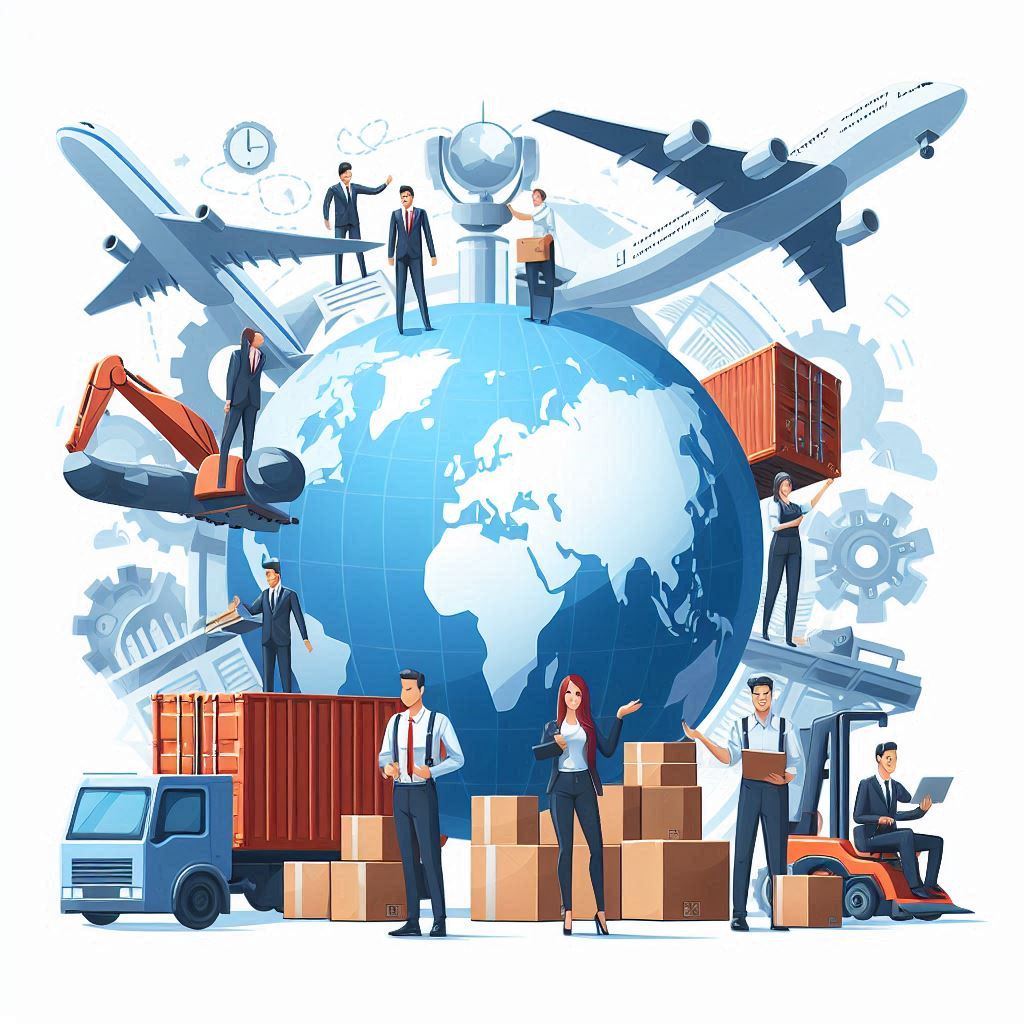If you’re looking for a career that mixes international trade, law, and logistics, becoming a customs broker in the Philippines might be a great choice for you. Customs brokers are important for helping businesses import and export goods, making sure they follow customs rules, and guiding them through the complex world of international trade. Here’s a simple step-by-step guide on how to become a customs broker in the Philippines.
Customs borders are key checkpoints where customs authorities manage the movement of goods and people between countries. These areas, including airports and seaports, are responsible for inspecting items, ensuring compliance with regulations, and preventing illegal activities like smuggling. Customs borders also play a crucial role in collecting duties and tariffs, which contribute to national revenue. Efficient processes at these borders facilitate international trade, benefiting both businesses and economies while maintaining security and regulatory standards.
Subscribe to the Ex-works24/7 newsletter
Importance of Customs
Customs are important for every country because they help control what goods enter and leave. They ensure that products meet safety and quality standards, protecting citizens from harmful items. Customs also collect taxes on imports, which helps fund government services. Additionally, they prevent illegal activities like smuggling and trafficking. By facilitating smooth trade and ensuring compliance with laws, customs play a vital role in a country’s economy and security, benefiting everyone in the long run.
Importance of Customs Brokers
Customs brokers are important because they help businesses navigate the complex rules of international trade. They prepare and submit paperwork needed for importing and exporting goods, making the process smoother and faster. Customs brokers ensure that shipments comply with laws and regulations, helping to avoid delays and fines. They also calculate taxes and duties, saving companies time and money. Overall, customs brokers play a key role in facilitating trade and ensuring that businesses operate efficiently across borders.
Future of Customs Brokers
The future for customs brokers in the Philippines looks bright. As global trade continues to grow, the demand for skilled customs brokers will increase. They will play a key role in helping businesses navigate complex regulations and ensure smooth imports and exports. With advancements in technology, customs brokers will also use new tools for faster processing. As the economy develops, there will be more job opportunities, making it a promising career choice for those interested in international trade.
1. Understand the Role of a Customs Broker
Before diving into the requirements, it’s essential to understand what a customs broker does. Customs brokers are licensed professionals who assist importers and exporters in clearing their goods through customs. Their responsibilities include:
- Preparing and submitting required documentation to customs authorities
- Ensuring compliance with laws and regulations
- Calculating duties and taxes
- Providing advice on tariff classifications and regulations
- Representing clients during customs inspections
2. Meet the Educational Requirements
To become a customs broker in the Philippines, you typically need to have at least a bachelor’s degree. Relevant fields of study include:
- Customs Administration
- Business Administration
- International Trade
- Supply Chain Management
- Logistics
While a degree in Customs Administration is the most direct route, other related fields can also provide a strong foundation. Other courses require to take BSCA as their second course to qualify on licensure examination.
3. Gain Relevant Experience
Experience in logistics, international trade, or customs operations is beneficial. Consider internships or entry-level positions in freight forwarding companies, shipping lines, or customs brokerage firms. This hands-on experience will help you understand the intricacies of customs regulations and procedures.
4. Customs Broker Licensure Examination
To practice as a customs broker in the Philippines, you must pass the Customs Broker Licensure Examination administered by the Professional Regulation Commission (PRC). Here’s how to prepare:
- Review the Syllabus: Familiarize yourself with the topics covered in the exam, such as customs laws, tariff systems, and valuation of goods.
- Join Review Classes: Enrolling in review classes can help reinforce your knowledge and provide valuable insights from experienced instructors.
- Practice Past Exams: Review past examination papers to get a sense of the questions and format.
5. Take the Licensure Examination
Once you feel prepared, you can register for the Customs Broker Licensure Examination. The exam is typically held twice a year. Make sure to check the PRC website for specific dates and registration details.
In conclusion, becoming a customs broker in the Philippines involves specific qualifications, preparation for the licensure examination, and an understanding of the licensing process. Aspiring brokers should focus on obtaining a relevant degree and gaining experience in logistics or trade. The exam is held once a year, and passing it is essential for licensure. With the right preparation, customs brokers can access diverse career opportunities, whether in established firms or as independent consultants, making it a rewarding career choice in a dynamic field.
Frequently
Asked Questions
To become a customs broker in the Philippines, you typically need a bachelor's degree in Customs Administration or a related field. Relevant work experience in logistics or international trade is also beneficial.
To prepare for the exam, review the syllabus, consider enrolling in review classes, and practice with past examination papers. This will help reinforce your knowledge and familiarize you with the exam format.
The Customs Broker Licensure Examination is usually conducted twice a year by the Professional Regulation Commission (PRC). Check the PRC website for specific dates and details.
After passing the examination, you must apply for your customs broker license through the PRC. This involves submitting necessary documents and paying the required fees.
Customs brokers can work for customs brokerage firms, logistics companies, or government agencies. They can also start their own businesses, providing valuable services to importers and exporters in the growing field of international trade.




